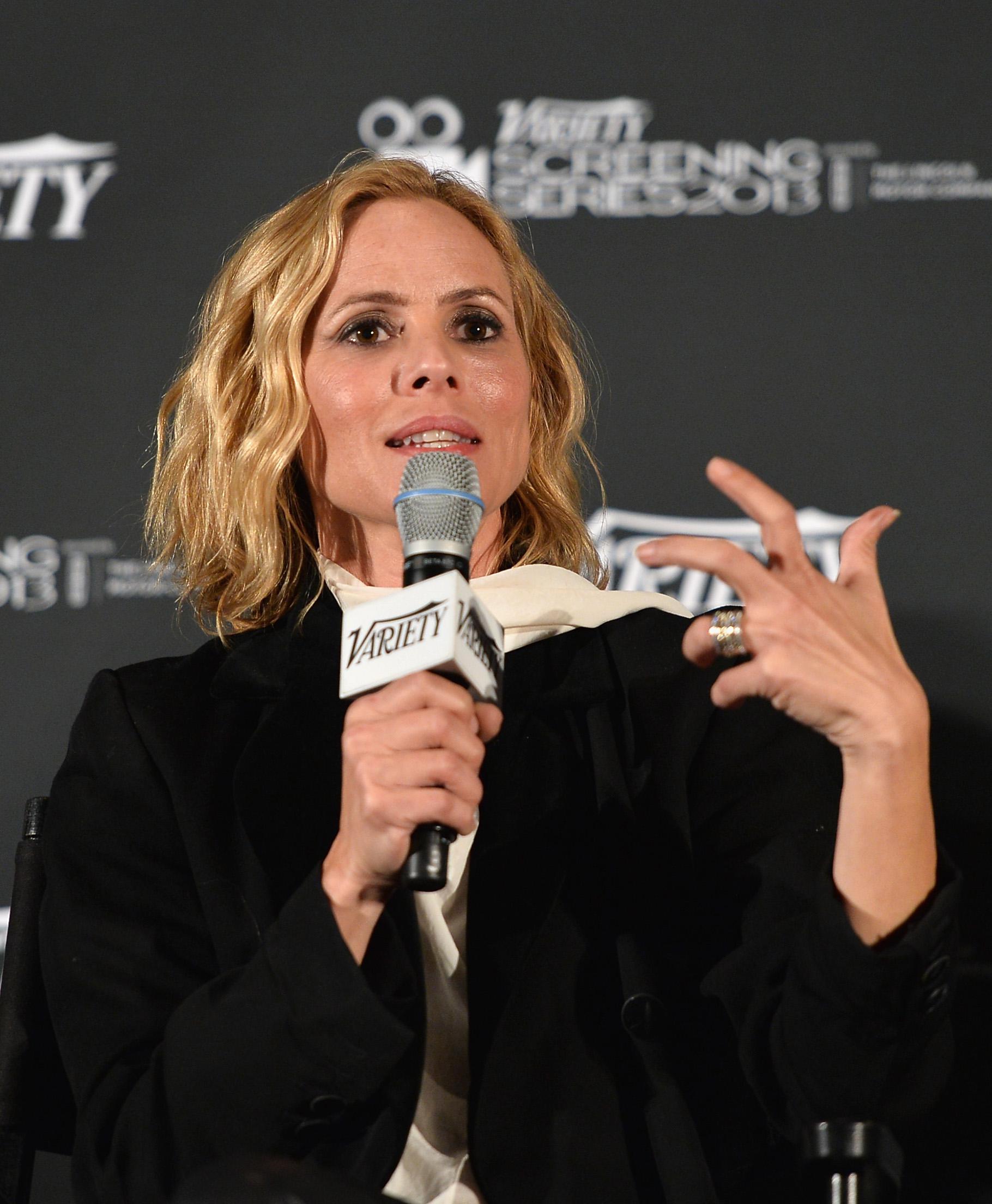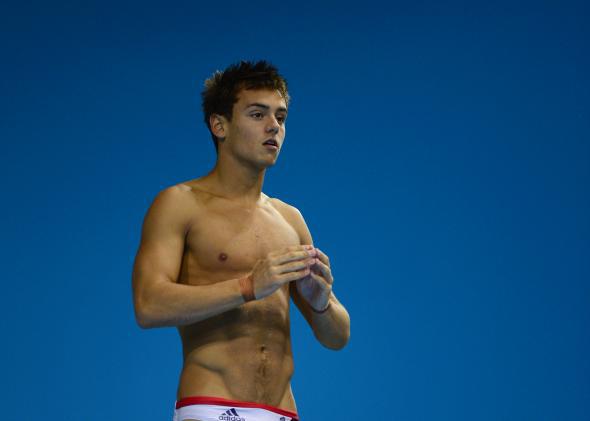Apparently, the celebrity world was listening when my colleague Mark Joseph Stern advised that Thanksgiving is the perfect time to come out: Actress Maria Bello was the first to act, eloquently writing about her eclectic family and her relationship with a woman in Sunday’s New York Times “Modern Love” column, and Olympic diver Tom Daley followed suit (surprisingly, considering that the Brits don’t do Thanksgiving) this morning in a YouTube video in which he very sweetly describes feeling “so safe” with his current boyfriend. Both are drawing a lot of chatter, both of the supportive and predictably nasty varieties.
Apparently, the celebrity world was listening when my colleague Mark Joseph Stern advised that Thanksgiving is the perfect time to come out: Actress Maria Bello was the first to act, eloquently writing about her eclectic family and her relationship with a woman in Sunday’s New York Times “Modern Love” column, and Olympic diver Tom Daley followed suit (surprisingly, considering that the Brits don’t do Thanksgiving) this morning in a YouTube video in which he very sweetly describes feeling “so safe” with his current boyfriend. Both are drawing a lot of chatter, both of the supportive and predictably nasty varieties. But before we consign these to the ever-growing file of celebrity comings-out, it’s worth examining an interesting element that the otherwise very different personal stories share in common: Neither Bello nor Daley “came out” as anything specific.
For her part, Bello (who has previously publically dated only men) writes that she “would like to consider [herself] a ‘whatever,’” following her young son’s open thinking on relationships. Daley is similarly vague: “Of course I still fancy girls,” he said, “but right now I’m dating a guy, and I couldn’t be happier.” Understandably, many in the media (including my colleagues at Slate) are rounding both of these admissions up to “bisexual,” but I don’t think we should do that for them. These announcements were both carefully calibrated, and if Bello or Daley had meant to say bisexual—a specific identity with a vibrant community, culture, and, importantly, an ongoing visibility problem—they would have done so. Instead, they chose a different route, distancing themselves from straight but not really embracing queer either.
For her part, Bello (who has previously publically dated only men) writes that she “would like to consider [herself] a ‘whatever,’” following her young son’s open thinking on relationships. Daley is similarly vague: “Of course I still fancy girls,” he said, “but right now I’m dating a guy, and I couldn’t be happier.” Understandably, many in the media (including my colleagues at Slate) are rounding both of these admissions up to “bisexual,” but I don’t think we should do that for them. These announcements were both carefully calibrated, and if Bello or Daley had meant to say bisexual—a specific identity with a vibrant community, culture, and, importantly, an ongoing visibility problem—they would have done so. Instead, they chose a different route, distancing themselves from straight but not really embracing queer either.

Photo by Alberto E. Rodriguez/Getty Images
Flavorwire’s Tyler Coates hits on this problem in a smart post on the trouble with the current “no big deal” coming-out paradigm, noting that the “you can’t label me” genre is “something that famous people do a lot easier than regular folk.” He’s right—celebrity affords (and to some degree, always has afforded) its bearers a certain amount of immunity from the struggles that most queer people face. Given their relative wealth, statuses, and locations, it’s unlikely that Bello’s non-lesbian drives with her “modern family” or Daley’s non-gay nights out with his boyfriend will be subject to many brushes with homophobia—provided, of course, that they stay out of Internet comment sections. And that’s wonderful for them. Meanwhile, the large majority of non-hetero people depend on those imperfect labels for support, camaraderie, and legibility within our familial and social worlds, not to mention for practical progress on civil rights issues.
Indeed, despite the rapid progress on limited issues like marriage, it bears asking whether we are at a point in history where we are advanced enough to dispense with gay solidarity entirely. For better or for worse, the very much unfinished LGBTQ civil rights project involves a certain amount of PR, and every PR campaign needs some buzzwords. Naively imagining that you can remove yourself from that paradigm because gay or bi doesn’t quite fit is a highly privileged act—especially when, as far as I can tell, the only worthwhile thing that can come from a celebrity’s coming out is some small contribution to queer visibility in communities where queer people may not be easily seen beyond the page or screen. Somehow, I’m guessing the status-update formulation “I happen to be seeing a man/woman now, but it’s no big deal” won’t do much to help with those who think “it’s just a phase.”
Plus, if the nuance-phobic media is going to insist on those crude labels anyway, you might as well do the politically helpful thing and choose a good-enough one upfront. To be clear, this does not mean that every queer celebrity needs to be a “role model” or an activist after they come out; as I’ve written before, regarding Jodie Foster’s controversial Golden Globes speech, simply speaking about your sexual orientation honestly (as I believe Foster did without even using the word lesbian) and acknowledging your place among a larger group of people and history, as Foster did, is enough. In this case, it sounds like Bello and Daley are more-or-less bisexual. Saying so wouldn’t take much, but it could do a lot.
Plus, if the nuance-phobic media is going to insist on those crude labels anyway, you might as well do the politically helpful thing and choose a good-enough one upfront. To be clear, this does not mean that every queer celebrity needs to be a “role model” or an activist after they come out; as I’ve written before, regarding Jodie Foster’s controversial Golden Globes speech, simply speaking about your sexual orientation honestly (as I believe Foster did without even using the word lesbian) and acknowledging your place among a larger group of people and history, as Foster did, is enough. In this case, it sounds like Bello and Daley are more-or-less bisexual. Saying so wouldn’t take much, but it could do a lot.
